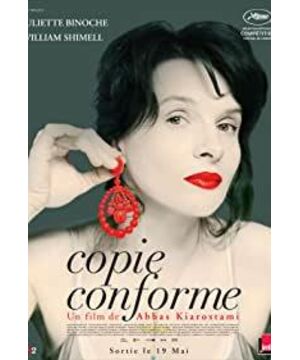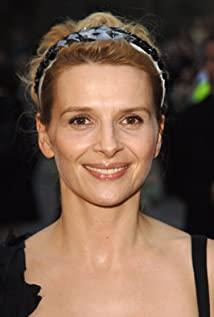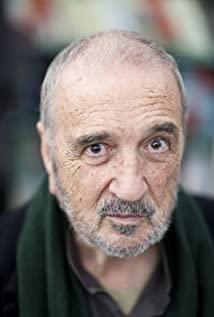I'm the woman who was furious because of her husband's special make-up on the anniversary, but he fell asleep without realizing it.
I'm also the husband who has worn down his passion and ambition in marriage and life to the point of falling asleep with no interest in the anniversary night.
I've always longed for fresh, fiery love, and can see and appreciate to a considerable extent the so-called "garden of fallen leaves." Even so, it doesn't make every day of being immersed in life any easier.
Thank you Abbas for telling this story so plainly and unadorned. The way it is told is as good as the kernel. Needless to say, Aunt Binoche is also the perfect spokesperson for an aging young literary man. Passive and silent are just right, not annoying at all.
The saying "The Garden of Fallen Leaves" is the most impressive line in the whole film. The excerpt is as follows:
The only thing that will keep their marriage and love is care, care and awareness.
Awareness of what?
That things change. Everything changes and promise couldn't stop that. Like you don't expect a tree to promise to keep its blossom after spring is over, because blossom turns into fruits. And then the tree loses its fruits.
And then?
And then...the garden of leavelessness.
The garden of leavelessness?
It's a Persian poem. "The garden of leavelessness, who dare say that it isn't beautiful?"
Two more excerpts from Abbas and Binoche .
1, Can you comment on the meaning of your last scene? The man is looking at himself in the mirror. What's happening?
Abbas: He is not looking so much at himself but at the spectator. All I see in his face is that he is overwhelmed by what he sees. After this woman has exposed her emotions and soul, he cannot just leave her and he cannot stay easily either. He cannot be self-centered and narcissistic. Even if he is self-centered, being placed in a situation like this makes him feel. If Juliette touches you the spectator when she stammers James, it cannot not have touched him as well .
2, How much is this film about male/female relationships?
Juliette: “Abbas is pessimistic about whether men and women can communicate. The fact is that women are so much more involved in emotions than men are. We expose ourselves more than men, perhaps because we give birth. Of course, I don't like to generalize: my character is also very male, goes forward, is active. And Abbas also said that the woman character is him: he raised his children on his own, he did the mother's job. As an Iranian man, he is very generous with women.”
She continued with the gender discussion — perhaps a key to this film which ends with Juliette's character in frustrated tears, lying on a bed. “What Abbas says is that men tend to put an intellectual distance between their emotions and the world in order to function , which is understandable, because if everyone were expressing emotion, the world would be upside down. I think we push men too much in trying to communicate, to get more intimate.”
View more about Certified Copy reviews











